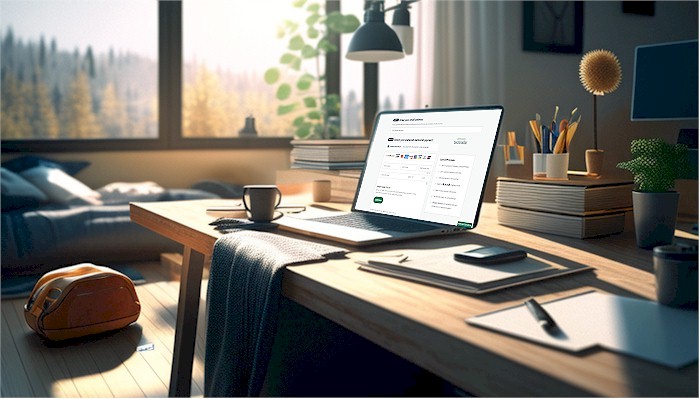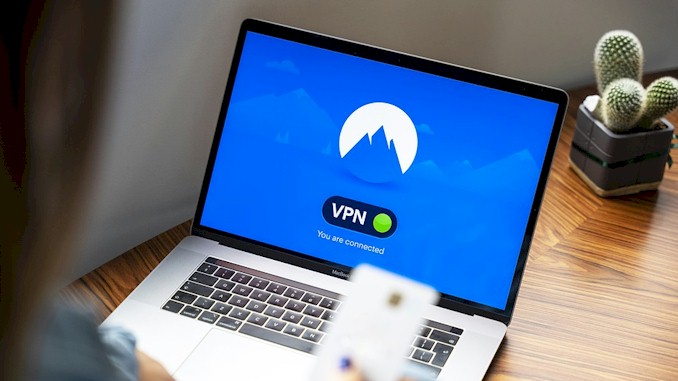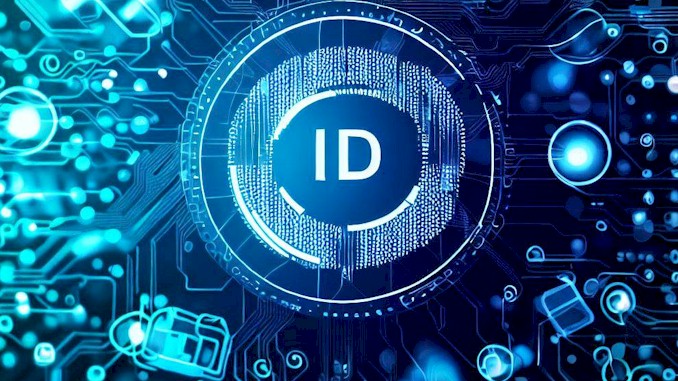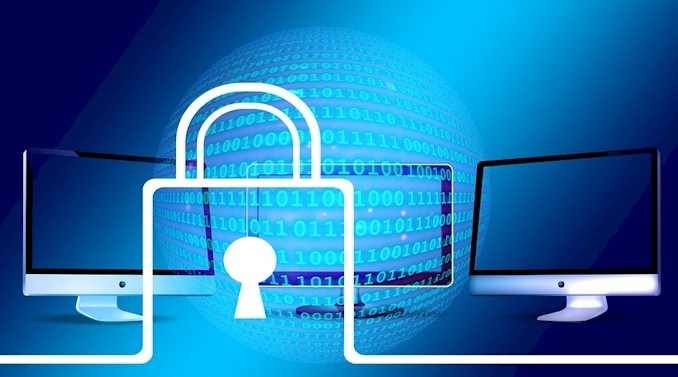Can your Internet Provider See your Histroy with a VPN
As an expert in the field of online privacy and security, I am frequently asked the question: “Can my internet provider see my history when I use a VPN?” The answer to this question is not a straightforward one, and there are many factors to consider. However, I can confidently say that I have the answer, and I am here to help you understand how VPNs work and whether they truly keep your online activity private from your internet service provider. In this blog post, I will delve into the intricacies of VPNs and the level of protection they offer, so you can make an informed decision about your online privacy.
A VPN encrypts internet traffic, making it unreadable to ISPs, which makes it difficult for them to see browsing history. However, it’s not a foolproof solution; if a VPN connection drops or is compromised, an ISP can still access browsing history, and the VPN provider can see activity.
If you’re curious about how your ISP gathers and utilizes data and information about you, what the hazards are, and how you may protect yourself, keep reading. You are in the right place. I’ll go more deeply into the facts of ISP data gathering and offer advice on how to maximize your online privacy in the paragraphs that follow. For more information about VPNs and how they may help you keep your browsing history hidden from your internet provider, continue reading.
How to prevent an ISP from seeing your online activity
When it comes to online privacy, one of the biggest concerns for internet users is the ability of their internet service provider (ISP) to see their online activity. ISPs are able to see everything you do online, from the websites you visit to the searches you perform, and even the files you download. This can be a serious invasion of your privacy, as well as a potential security risk if your data falls into the wrong hands.
Fortunately, there are ways to prevent your ISP from seeing your online activity, one of which is by using a Virtual Private Network (VPN). As mentioned earlier, a VPN encrypts your internet traffic, making it unreadable to anyone who may be monitoring your online activity, including your ISP. This means that your browsing history and online activity will remain private, even from your ISP.
Another way to prevent your ISP from seeing your online activity is by using a proxy server. A proxy server acts as an intermediary between your device and the internet, allowing you to access the internet without revealing your IP address or other identifying information to your ISP. This can be an effective way to hide your online activity from your ISP, but it’s not as secure as using a VPN.
In addition to using a VPN or proxy server, you can also take steps to protect your online privacy by using encrypted messaging services, such as Signal or WhatsApp, to communicate with others. These services use end-to-end encryption, which means that your messages are only readable by you and the person you’re communicating with. This can help to ensure that your conversations remain private and secure, even from your ISP.
Overall, while there are many ways that ISPs can see your online activity, there are also many ways to protect your privacy and keep your online activity hidden from your ISP. By using a VPN or proxy server, and by using encrypted messaging services, you can help to ensure that your online activity remains private and secure, even from your ISP.
Why does my ISP want to track me?
Many internet users wonder why their internet service provider (ISP) would want to track their online activity in the first place. After all, it seems like a violation of privacy for ISPs to monitor everything their customers do online. However, there are several reasons why ISPs may want to track your online activity.
One reason is for marketing purposes. ISPs may track your online activity in order to serve you more targeted advertisements. By analyzing the websites you visit and the searches you perform, ISPs can get a better understanding of your interests and preferences, which they can then use to serve you more relevant ads. This can be beneficial for both the ISP and the advertiser, as it can increase the effectiveness of the advertisements.
Another reason why ISPs may want to track your online activity is to monitor network traffic. By monitoring the online activity of their customers, ISPs can get a better understanding of how much bandwidth is being used, and how it’s being used. This can help them to optimize their network and ensure that all customers have access to fast and reliable internet speeds.
ISPs may also track your online activity for security purposes. By monitoring the websites you visit and the files you download, ISPs can identify potential threats, such as malware or viruses, and take action to protect their network and customers. This can help to ensure that all customers are able to use the internet safely and securely.
In addition to these reasons, governments may require ISPs to track the online activity of their customers for national security or law enforcement purposes. This type of surveillance can be controversial and raises concerns about privacy and civil liberties. However, it’s important to note that ISPs are legally obligated to comply with government requests for information, which means that your online activity may be monitored by both your ISP and government agencies.
While there are valid reasons why ISPs may want to track your online activity, it’s important to remember that this can be a violation of privacy. If you’re concerned about your online privacy, there are steps you can take to protect yourself, such as using a VPN or proxy server to hide your online activity from your ISP. By taking steps to protect your privacy, you can help to ensure that your online activity remains private and secure.
How do I know if my ISP is tracking me?
It can be difficult to determine whether your ISP is tracking your online activity. ISPs may not always be transparent about their data collection practices, which can make it challenging for customers to know what information is being collected and how it’s being used.
However, there are some signs that can indicate that your ISP is tracking your online activity. One common indicator is the presence of targeted advertisements. If you notice that you’re seeing ads that are highly relevant to your interests, it’s possible that your ISP is tracking your online activity in order to serve you more personalized ads.
Another sign that your ISP may be tracking your online activity is if you receive notifications from your ISP about your data usage. ISPs may send notifications to customers who are approaching or exceeding their data caps, which can indicate that they are monitoring your online activity.
Additionally, some ISPs may offer tools or services that allow customers to monitor their own online activity. While these tools can be useful for tracking your own usage and identifying potential security threats, they may also indicate that your ISP is tracking your online activity.
If you’re still unsure whether your ISP is tracking your online activity, you can review your ISP’s privacy policy or terms of service. These documents should outline the types of data that are collected and how they are used. You can also contact your ISP directly and ask them about their data collection practices.
If you’re concerned about your ISP tracking your online activity, there are steps you can take to protect your privacy. One option is to use a VPN, which encrypts your internet traffic and hides your online activity from your ISP. Another option is to use privacy-focused web browsers or search engines, which don’t track your activity or collect personal information.
You can assist to guarantee that your online activity stays private and safe by taking precautions to preserve your privacy and being aware of the warning signals that your ISP may be monitoring your activities.
Is my data at risk with my ISP?
Yes, your data can be at risk with your ISP. ISPs have the ability to track your online activity, including the websites you visit, the searches you make, and the files you download. This data can be used to build a profile of your online behavior, which can be sold to advertisers or used by your ISP to deliver targeted advertising.
In addition, if your ISP’s data is breached or hacked, your personal information could be at risk. This could include your name, address, phone number, email address, and even your credit card information if you’ve provided it to your ISP.
However, it’s important to note that not all ISPs are created equal when it comes to data privacy and security. Some ISPs have more robust security measures in place, while others may be more vulnerable to cyberattacks or data breaches.
To help protect your data from your ISP, you can use a VPN to encrypt your internet traffic and hide your online activity. You can also use privacy-focused web browsers or search engines, which don’t track your activity or collect personal information.
Additionally, you can review your ISP’s privacy policy and terms of service to better understand how they collect, use, and protect your data. If you have concerns about your ISP’s data privacy practices, you can also contact them directly to ask about their security measures and data protection policies.
What can ISPs do with my data?
ISPs can use your data in a variety of ways, depending on their business model and partnerships with other companies. Here are some examples:
- Targeted advertising: ISPs can use your browsing history and online activity to deliver targeted ads to you. This means that you may see ads for products and services that are based on your interests or online behavior.
- Data mining: ISPs can collect and analyze large amounts of data about their customers’ online activity to identify trends and patterns. This data can be used to develop new products and services or to improve existing ones.
- Sell data to third parties: Some ISPs may sell your data to third-party advertisers, data brokers, or other companies. This means that your personal information could end up in the hands of companies you’ve never heard of.
- Monitor and throttle your internet connection: ISPs can monitor your internet usage to ensure that you’re not violating their terms of service or using too much data. They may also throttle or slow down your connection if you exceed certain data usage thresholds.
- Respond to legal requests: ISPs may be required by law to provide your data to government agencies or law enforcement officials in response to a subpoena or other legal request.
It’s important to note that ISPs are legally required to protect your data and keep it confidential. However, this doesn’t guarantee that your data will always be safe or that it won’t be misused.
What data do ISPs track?
ISPs can track a variety of data related to your online activity, including:
- Browsing history: ISPs can see the websites you visit and the pages you view on those sites.
- Search history: ISPs can see the search terms you enter into search engines like Google or Bing.
- IP addresses: ISPs assign you an IP address when you connect to the internet, which they can use to identify your location and track your online activity.
- Device information: ISPs can see information about the devices you use to access the internet, including the make and model of your computer, phone, or tablet.
- App usage: ISPs can see which apps you use on your devices and how much data you’re using with each app.
- DNS requests: ISPs can see the websites you’re trying to access, even if they’re encrypted, by tracking your DNS requests.
- Metadata: ISPs can collect metadata about your online activity, such as the time and date you accessed certain websites or the amount of data you downloaded or uploaded.
It’s important to note that not all ISPs track all of this data, and some may collect more or less information depending on their policies and business practices.
Can my ISP see my VPN?
Your ISP can see that you’re using a VPN, but they won’t be able to see your online activity while you’re connected to the VPN. When you use a VPN, your internet traffic is encrypted and routed through a remote server, which makes it appear as though your online activity is originating from that server rather than your device.
However, your ISP can still see that you’re connecting to a VPN server, which may raise some red flags if VPN usage is restricted in your country or if your ISP has policies against VPN usage. Additionally, if your VPN connection is not secure or if you have DNS leaks, your ISP may be able to see some of your online activity.
To ensure maximum privacy and security, it’s important to use a reputable VPN provider with strong encryption protocols and no-logs policies. You can also use features like a kill switch and DNS leak protection to prevent any accidental exposure of your online activity to your ISP.
What does a VPN hide from my ISP?
A VPN hides a lot of information from your ISP, including:
- Your browsing history: With a VPN, your ISP won’t be able to see which websites you’re visiting or the pages you’re viewing.
- Your search history: Your ISP won’t be able to see the search terms you enter into search engines like Google or Bing.
- Your IP address: When you use a VPN, your IP address is replaced with the IP address of the VPN server you’re connected to. This means your ISP won’t be able to see your real IP address, which can help protect your privacy and prevent tracking.
- Your online activity: A VPN encrypts all of your internet traffic, which means your ISP won’t be able to see what you’re doing online or the data you’re transmitting.
- Your location: By hiding your IP address, a VPN also hides your location from your ISP and other entities that may want to track your online activity.
Overall, a VPN can help protect your online privacy and security by keeping your internet activity private and secure from your ISP and other entities that may want to track or collect your data. However, it’s important to choose a reputable VPN provider with strong encryption protocols and no-logs policies to ensure maximum privacy and security.
Why does the ISP still see some information?
While a VPN can hide a lot of information from your ISP, there are still some limitations to what it can hide. Here are some reasons why your ISP may still see some information even when you’re using a VPN:
- VPN connection: Your ISP can see that you’re connected to a VPN server, even though they can’t see what you’re doing on that server. If VPN usage is restricted in your country or by your ISP, this could raise some red flags.
- Metadata: Your ISP can see metadata about your internet activity, such as the amount of data you’re transmitting, the time of day, and the type of device you’re using. While this information doesn’t reveal the content of your online activity, it can still provide some clues about your behavior.
- DNS leaks: If your VPN connection has DNS leaks, your ISP may be able to see some of your online activity. This can happen if your device is using its default DNS settings instead of the VPN’s encrypted DNS servers.
- Malware: If your device is infected with malware, your ISP may be able to see your online activity even when you’re using a VPN. This is because malware can bypass VPN encryption and send data directly to the attacker.
Overall, while a VPN can provide a high level of privacy and security, it’s important to be aware of its limitations and to take steps to ensure maximum protection of your online activity. This includes using a reputable VPN provider with strong encryption protocols and no-logs policies, as well as taking additional measures like using a kill switch and DNS leak protection.







